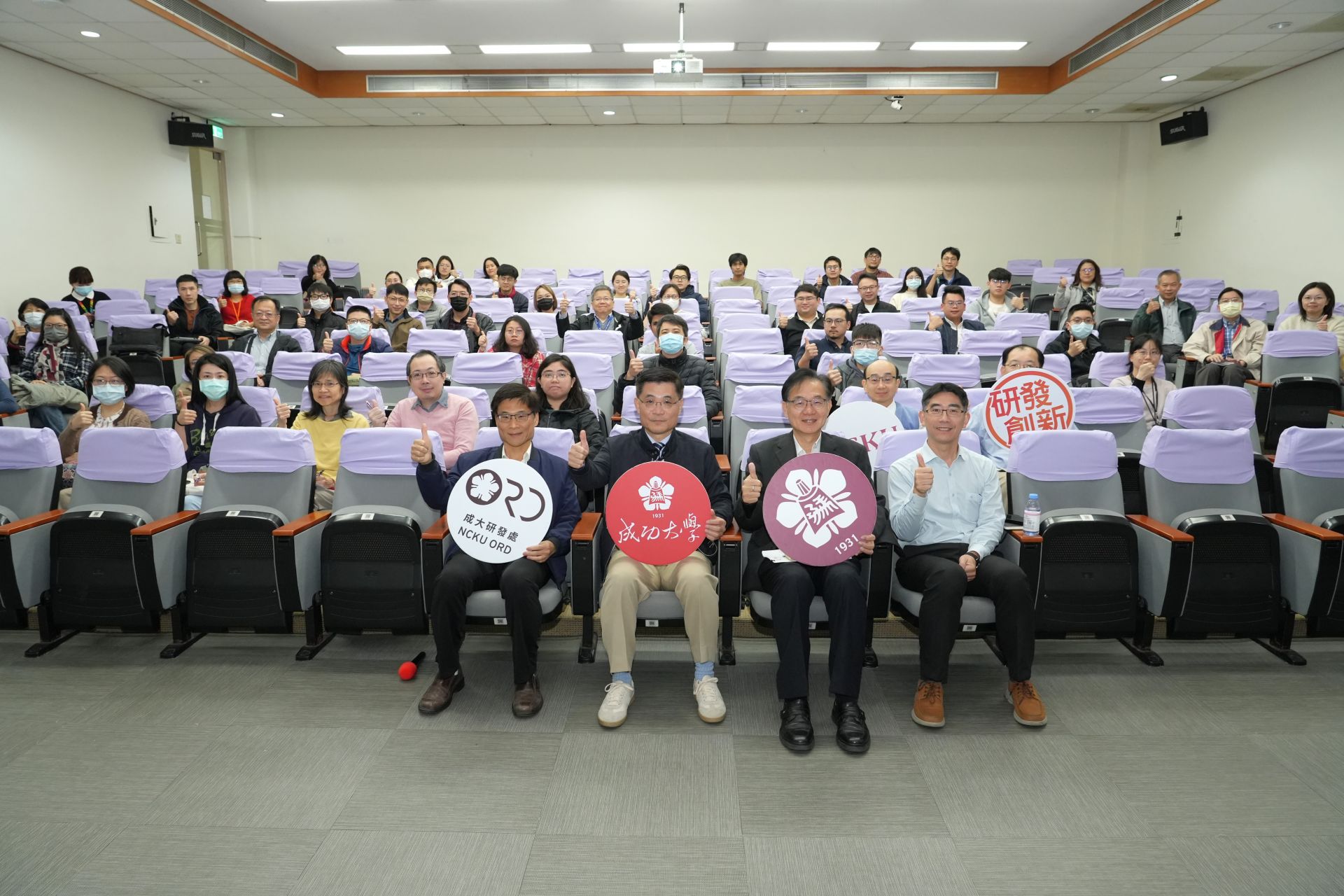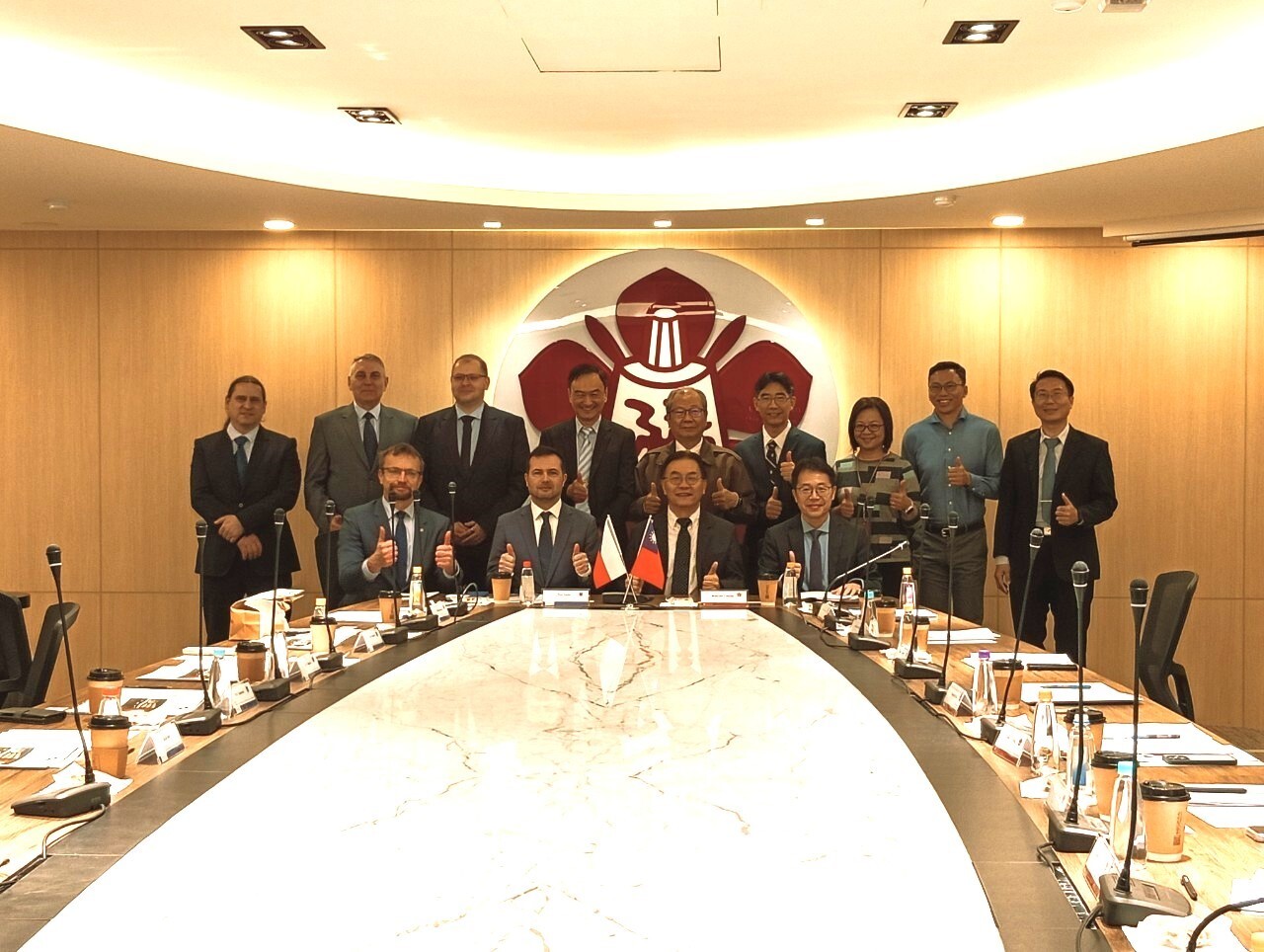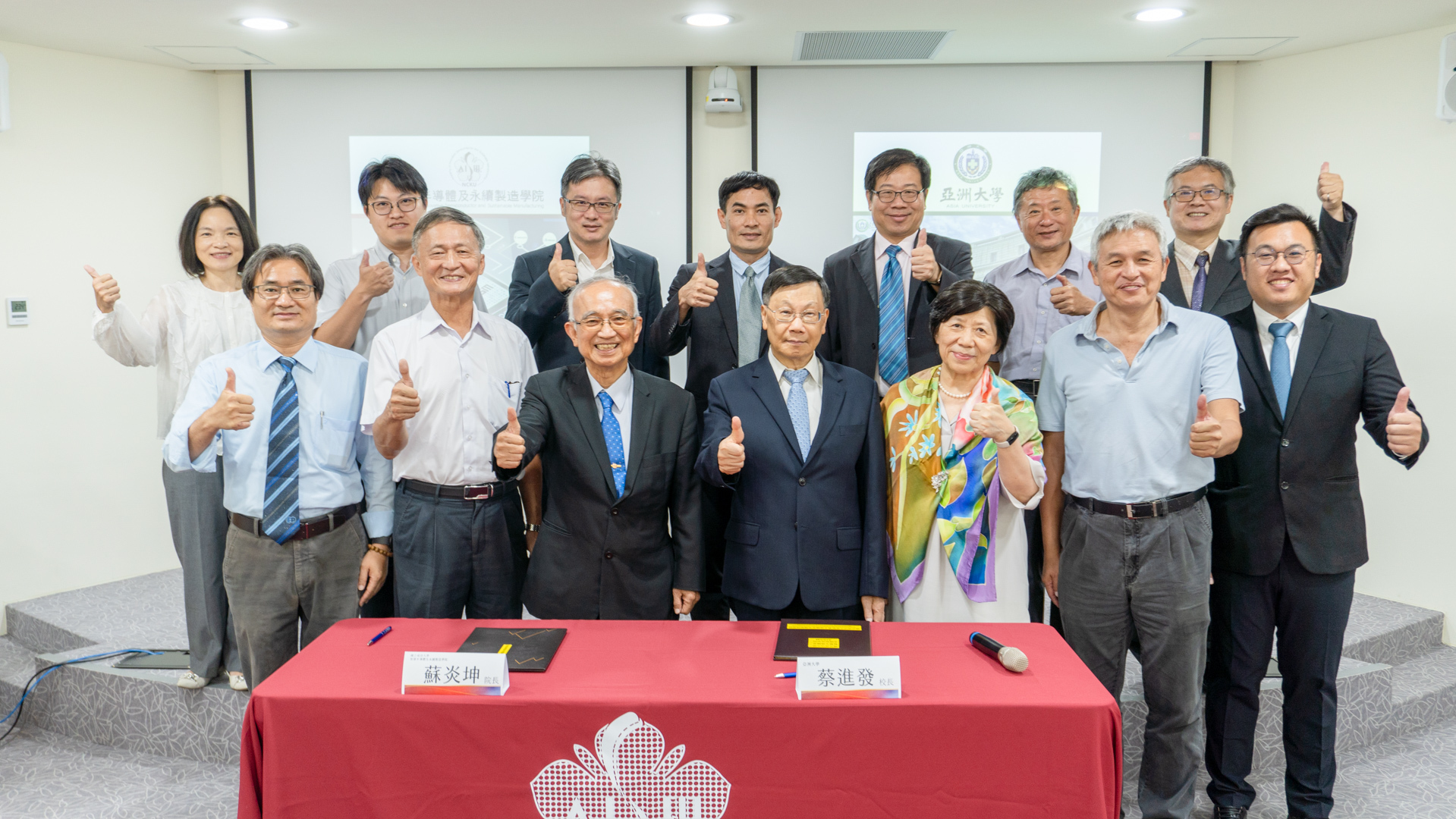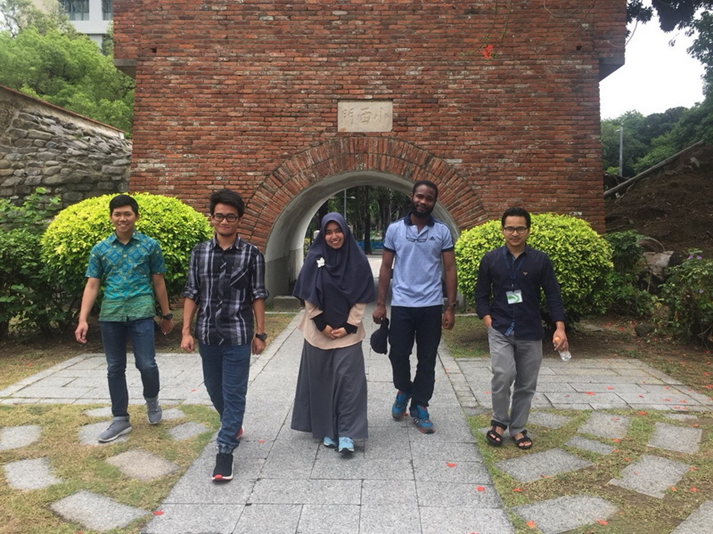NCKU Lifts the Veil of Islam and Creates First Muslim-friendly Campus
An increasing number of foreign students enroll at NCKU every year, and many of them are followers of Islam. At present, there are approximately 200 Muslim students at NCKU from places around the world, including Iran, Egypt, Nigeria, India, Pakistan, Bangladesh, Sri Lanka, Malaysia, and even Burkina Faso in West Africa. In response to this growing trend, in 2014 the Muslim Students Association-NCKU (MSA) was founded.
Current MSA president Faizal states that the MSA operates not only to serve its student members but also to promote interactions and exchanges with international Muslim organizations and to provide assistance to Muslims staying in Taiwan for short or long periods of time. For example, the MSA has provided Muslim businessmen with a venue for their ritual prayers. The five Muslim students that we interviewed all agreed that the prayer room established at NCKU in 2016 was a great advantage for Muslims living in Taiwan.
Taiwanese Friendliness Makes Muslims in Taiwan Feel at Ease
When it comes to Islam, there is a lot of curiosity from the Taiwanese public. The garments of a Muslim woman walking the sunny streets of Tainan in summer will especially draw attention. NCKU nursing student Dewi remarked that students are often curious about her clothes, asking why she has cloaks in so many colors and styles, and some even ask to try them on. She has been asked whether she is envious of the less-concealing clothes worn by other female students. To this, she replied, “I’m used to this style of dress, so I don’t feel envious or uncomfortable, but these are questions that I would never get in my own country, so I find talking about it really interesting!”
Another troublesome matter for Muslims living in Taiwan is food. Muslims are prohibited from eating pork, and even the cookware used to cook their food must never have been used to cook pork. As a result, many Muslim students choose to cook their own meals, but this is difficult for Muslim students who live in a dorm with no access to a kitchen. Few restaurants offer halal food in Tainan. However, the friendliness of Taiwanese people and their respect for the religions of others have gratified these Muslim students. Faizal said, "The restaurants in Taiwan are all very friendly. They’re always willing to prepare our orders separately and as we request them.”
Issa, who has been living in Taiwan for 3 years, shared her observations of the friendly treatment that Taiwanese people give to Muslims: “I have some friends who study in Northern Taiwan. Because they do not have a prayer room like we do here at NCKU, they perform their ritual prayers in the dormitory hall. However, they are never asked to leave or given strange looks. Instead, the other students try not to disturb them, which makes them feel at ease.”
Living Abroad Helps Muslims Gain a Broader Perspective
There is a widespread impression of Muslims as serious, dignified, and disciplined, but after meeting and talking with them, we were quick to realize that they can also be free and lively. When asked whether they envy the freedom of Taiwanese youth to socialize and enjoy themselves all five laughed. Issa said, “You can ask anyone in our department; everyone knows me! I am very boisterous and love chatting with people!”
When we asked after their impressions of the Taiwanese, Dewi laughed. When she first arrived in Taiwan, she often saw senior citizens nagging and harping on about things loudly in public. Their yelling and scolding made her think that all elderly people in Taiwan had bad tempers. It wasn't until later that she realized they were talking loudly but not in anger.
These foreign students have since graduated and returned to contribute to their hometowns and countries, but the kindness and acceptance of the Taiwanese have long made them think of Taiwan as their second home. Cultural differences are part of living in and exploring the world. It takes personal experience for people to be able to let go of and laugh over differences between individuals, races, and cultures. We hope that the broadened perspective gained by these students will continue to grow and serve them.
An increasing number of foreign students enroll at NCKU every year, and many of them are followers of Islam. At present, there are approximately 200 Muslim students at NCKU from places around the world, including Iran, Egypt, Nigeria, India, Pakistan, Bangladesh, Sri Lanka, Malaysia, and even Burkina Faso in West Africa. In response to this growing trend, in 2014 the Muslim Students Association-NCKU (MSA) was founded.
Current MSA president Faizal states that the MSA operates not only to serve its student members but also to promote interactions and exchanges with international Muslim organizations and to provide assistance to Muslims staying in Taiwan for short or long periods of time. For example, the MSA has provided Muslim businessmen with a venue for their ritual prayers. The five Muslim students that we interviewed all agreed that the prayer room established at NCKU in 2016 was a great advantage for Muslims living in Taiwan.
Taiwanese Friendliness Makes Muslims in Taiwan Feel at Ease
When it comes to Islam, there is a lot of curiosity from the Taiwanese public. The garments of a Muslim woman walking the sunny streets of Tainan in summer will especially draw attention. NCKU nursing student Dewi remarked that students are often curious about her clothes, asking why she has cloaks in so many colors and styles, and some even ask to try them on. She has been asked whether she is envious of the less-concealing clothes worn by other female students. To this, she replied, “I’m used to this style of dress, so I don’t feel envious or uncomfortable, but these are questions that I would never get in my own country, so I find talking about it really interesting!”
Another troublesome matter for Muslims living in Taiwan is food. Muslims are prohibited from eating pork, and even the cookware used to cook their food must never have been used to cook pork. As a result, many Muslim students choose to cook their own meals, but this is difficult for Muslim students who live in a dorm with no access to a kitchen. Few restaurants offer halal food in Tainan. However, the friendliness of Taiwanese people and their respect for the religions of others have gratified these Muslim students. Faizal said, "The restaurants in Taiwan are all very friendly. They’re always willing to prepare our orders separately and as we request them.”
Issa, who has been living in Taiwan for 3 years, shared her observations of the friendly treatment that Taiwanese people give to Muslims: “I have some friends who study in Northern Taiwan. Because they do not have a prayer room like we do here at NCKU, they perform their ritual prayers in the dormitory hall. However, they are never asked to leave or given strange looks. Instead, the other students try not to disturb them, which makes them feel at ease.”
Living Abroad Helps Muslims Gain a Broader Perspective
There is a widespread impression of Muslims as serious, dignified, and disciplined, but after meeting and talking with them, we were quick to realize that they can also be free and lively. When asked whether they envy the freedom of Taiwanese youth to socialize and enjoy themselves all five laughed. Issa said, “You can ask anyone in our department; everyone knows me! I am very boisterous and love chatting with people!”
When we asked after their impressions of the Taiwanese, Dewi laughed. When she first arrived in Taiwan, she often saw senior citizens nagging and harping on about things loudly in public. Their yelling and scolding made her think that all elderly people in Taiwan had bad tempers. It wasn't until later that she realized they were talking loudly but not in anger.
These foreign students have since graduated and returned to contribute to their hometowns and countries, but the kindness and acceptance of the Taiwanese have long made them think of Taiwan as their second home. Cultural differences are part of living in and exploring the world. It takes personal experience for people to be able to let go of and laugh over differences between individuals, races, and cultures. We hope that the broadened perspective gained by these students will continue to grow and serve them.

SDG17NCKU Launches Core Research Programs to Drive Interdisciplinary Innovation and Cultivate Top Talent
View more
SDG17Masaryk University Visits NCKU to Explore Collaborative Research in Specialized Fields
View more




















